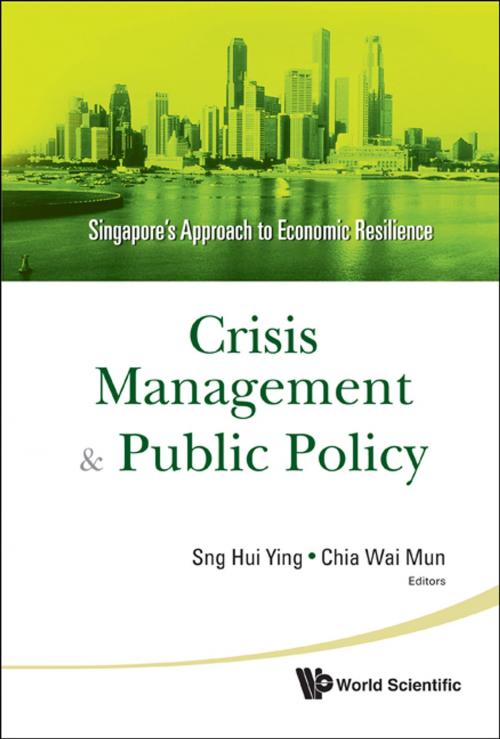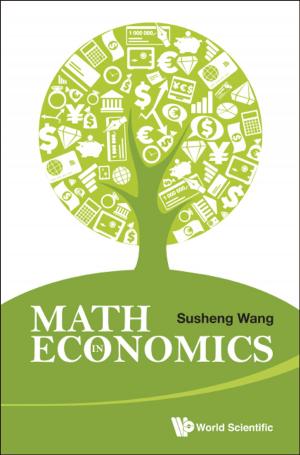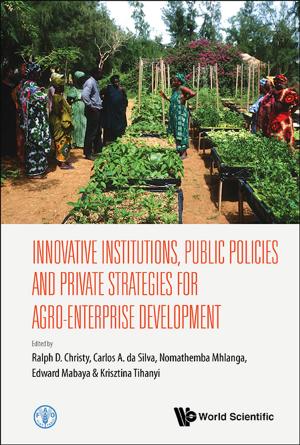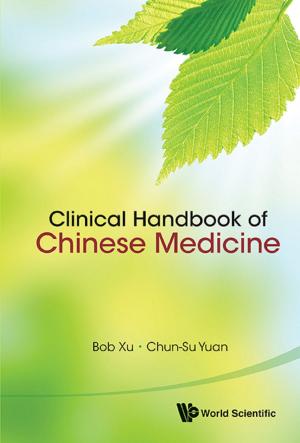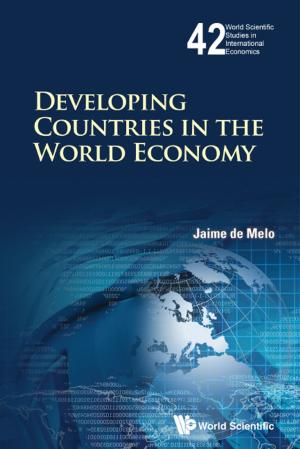Crisis Management and Public Policy
Singapore's Approach to Economic Resilience
Business & Finance, Economics, Theory of Economics, Nonfiction, Social & Cultural Studies, Political Science, Government, Public Policy| Author: | Hui Ying Sng, Wai Mun Chia | ISBN: | 9789814460743 |
| Publisher: | World Scientific Publishing Company | Publication: | June 10, 2011 |
| Imprint: | WSPC | Language: | English |
| Author: | Hui Ying Sng, Wai Mun Chia |
| ISBN: | 9789814460743 |
| Publisher: | World Scientific Publishing Company |
| Publication: | June 10, 2011 |
| Imprint: | WSPC |
| Language: | English |
This book is an annual effort by the economists from the Nanyang Technological University to provide analysis, interpretations and insights on contemporary economic issues affecting Singapore.
In 2010, Singapore's economy was just recovering from the sharp economic downturn in 2008/09 caused by the Global Financial Crisis. The global economic outlook in the short and medium term remained uncertain and the risk of another economic or financial crisis remains high. Thus, one of the key themes of this book is to study economic crises and financial crises, and the policy measures that are available to manage them.
Looking ahead, in order to ensure long term growth and prosperity for Singapore's economy, microeconomic policy adjustments and fine-tuning is still needed to build a competitive and resilient nation. Therefore, the second key theme of the book is to review several public policies in Singapore, such as competition, healthcare, training, free trade agreements, state capitalism and inequality.
Contents:
-
Economic Crisis Management:
- The National Wages Council (NWC) and Macroeconomic Management in Singapore (LIM Chong Yah)
- Unpreparedness in the Great Recession (LIM Chong Yah & SNG Hui Ying)
- Why are Financial Crises so Costly? (TAN Kim Heng)
- A Case for Selective Capital Control (LIM Chong Yah & Sarah CHAN)
-
Public Policies and Other Economic Issues:
- Competition Policy and Law in Singapore (LAM Chuan Leong)
- Healthcare: Containing Cost without Comprising Quality (Linda TAN Hui Min & CHEW Soon Beng)
- Economics of Training: Market Failure and Government Intervention (Rosalind CHEW)
- A Review of the US-Singapore Free Trade Agreement (CHEE Yoke Heong & CHIA Wai Mun)
- State Capitalism in Singapore (SNG Hui Ying)
- Growth, Opportunity, and Inequality: Some Empirics from Singapore (HO Kong Weng)
- Are Fines Compatible with Building a Truly Fine Country? (Walter THESEIRA & TAN Di Song)
Readership: Undergraduates in economics & political science, policy-makers and general public.
Key Features:
- The book has a strong focus on economic/financial crises and the Singapore approach to crisis management, which is different from the standard policy tools
- We have authoritative authors writing several key chapters. Mr Lam Chuan Leong (Chairman of the Competition Commission of Singapore) wrote on Competition Law, Prof Lim Chong Yah (founding-chairman of NWC) wrote on the National Wages Council (a key institution in crisis management), and Prof Chew Soon Beng (renowned labor economist) wrote on training
- The book has a wide coverage of public policy topics
This book is an annual effort by the economists from the Nanyang Technological University to provide analysis, interpretations and insights on contemporary economic issues affecting Singapore.
In 2010, Singapore's economy was just recovering from the sharp economic downturn in 2008/09 caused by the Global Financial Crisis. The global economic outlook in the short and medium term remained uncertain and the risk of another economic or financial crisis remains high. Thus, one of the key themes of this book is to study economic crises and financial crises, and the policy measures that are available to manage them.
Looking ahead, in order to ensure long term growth and prosperity for Singapore's economy, microeconomic policy adjustments and fine-tuning is still needed to build a competitive and resilient nation. Therefore, the second key theme of the book is to review several public policies in Singapore, such as competition, healthcare, training, free trade agreements, state capitalism and inequality.
Contents:
-
Economic Crisis Management:
- The National Wages Council (NWC) and Macroeconomic Management in Singapore (LIM Chong Yah)
- Unpreparedness in the Great Recession (LIM Chong Yah & SNG Hui Ying)
- Why are Financial Crises so Costly? (TAN Kim Heng)
- A Case for Selective Capital Control (LIM Chong Yah & Sarah CHAN)
-
Public Policies and Other Economic Issues:
- Competition Policy and Law in Singapore (LAM Chuan Leong)
- Healthcare: Containing Cost without Comprising Quality (Linda TAN Hui Min & CHEW Soon Beng)
- Economics of Training: Market Failure and Government Intervention (Rosalind CHEW)
- A Review of the US-Singapore Free Trade Agreement (CHEE Yoke Heong & CHIA Wai Mun)
- State Capitalism in Singapore (SNG Hui Ying)
- Growth, Opportunity, and Inequality: Some Empirics from Singapore (HO Kong Weng)
- Are Fines Compatible with Building a Truly Fine Country? (Walter THESEIRA & TAN Di Song)
Readership: Undergraduates in economics & political science, policy-makers and general public.
Key Features:
- The book has a strong focus on economic/financial crises and the Singapore approach to crisis management, which is different from the standard policy tools
- We have authoritative authors writing several key chapters. Mr Lam Chuan Leong (Chairman of the Competition Commission of Singapore) wrote on Competition Law, Prof Lim Chong Yah (founding-chairman of NWC) wrote on the National Wages Council (a key institution in crisis management), and Prof Chew Soon Beng (renowned labor economist) wrote on training
- The book has a wide coverage of public policy topics
